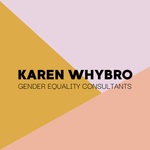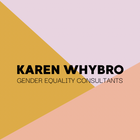Women's Safety Charters
Do women in your town or city feel safe? Recent research has shown many women don't feel safe in their own towns and cities, travelling on public transport and even visiting parks during the daytime. Since 2018, women's feeling of safety has declined, with 63% of women feeling 'very or fairly unsafe' walking alone after dark and 31% of women feeling 'very or fairly unsafe' in a public or busy space such as a high street.*
This is clearly a gendered issue, with almost double the number of women feeling unsafe in a park compared to men. Furthermore, our academic research clearly illustrated a difference in the way women and men adapt their behaviour when enjoying a night out, with 63% of women doing so "always or usually" compared with 13% of men.

Why does this matter?
Aside from the fact that freedom of movement is a fundamental human right which women should be able to exercise without fearing for their safety, this has huge impacts and implications on communities, towns and cities. Women report actively avoiding certain locations, venues or areas due to their lack of safety with 50% of women experiencing some form of harassment in their lifetime.*
From a local authority or business perspective, the loss of custom, footfall and revenue is largely unmeasured but is obviously extremely worrying, especially in this current economic climate.
What is a Women's Safety Charter?
A Women's Safety Charter is a collaborative project from Councils + BIDs (Business Improvement Districts) within a town or city which recognises that certain male behaviours must be addressed where women feel unsafe. It supports the need for urgent education on women's safety within the community and local businesses and is committed to increasing safe spaces for women.
What impact does a safety charter have?
Asking businesses and organisations to commit to a Women's Safety Charter creating a network of safe spaces harnesses the impact of the night-time economy and other private enterprises and partners their position with visitors and residents to create a safer and more positive experience for women. Women report being more likely to visit a venue or business if a clear anti-harassment and equality policy is in place and feel safer knowing there is a zero tolerance stance towards misogyny. In turn, the prosperity of a city, town or district is increased, seeing huge benefits in centring women's experiences within the community.

